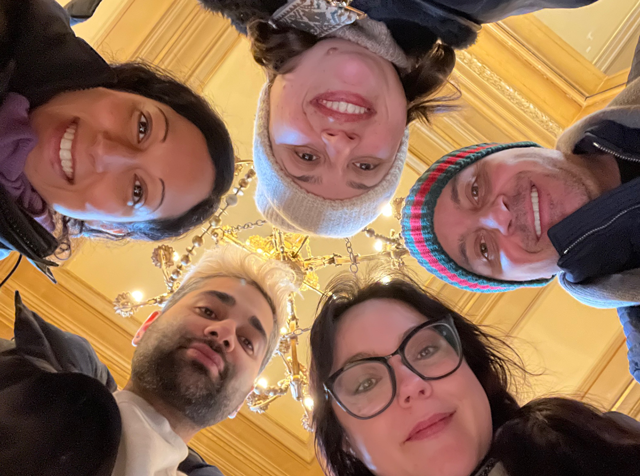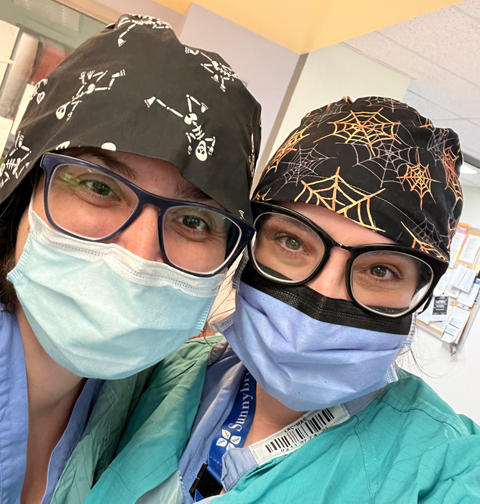When teamwork is high stakes
Familiarity between surgical team positively impacts care of patients

Dr. Hallet (bottom right) with her anesthesia colleagues
Teamwork and a familiarity among work team members has long been known to enhance success in a number of fields, but rarely has it been studied in the operating room (OR).
A new Canadian study has now provided support for this concept in an OR setting, showing its impact on the short-term outcomes of patients having complex gastrointestinal cancer surgery.
The findings showed that the more a patient’s surgeon and anesthesiologist worked together, the better their outcome was 90 days after having the surgery. For each additional time that a specific surgeon and anesthesiologist worked together, the odds of the patient having complications at the 90-day mark was decreased by five per cent.
“This research points to the importance of consistent teamwork,” says Dr. Julie Hallet, lead author of a new study and a surgical oncologist at Sunnybrook’s Odette Cancer Centre. “The relationship between the surgeon and anesthesiologist is crucial to a good patient outcome.”
The study, published in the February 22, 2023 issue of JAMA Surgery, included 7,893 adult patients undergoing esophagectomy, pancreatectomy, and hepatectomy for cancer from 2007 through 2018. They were cared for by 737 anesthesiologists and 163 surgeons, who were also included in the study.
“In the OR, different members of the team, such as trainees, have mentioned that connections and familiarity of the team creates a much more collegial environment in which they feel comfortable speaking with their inter-professional colleagues, which benefits patients,” says Dr. Hallet, also an associate professor in the Department of Surgery at University of Toronto.

Dr. Hallet (right) and Dr. Ladowski (Anesthesiologist)
Anecdotally, anesthesiologist Dr. Fahad Alam – who was not involved in the study – offers his insights: “A fundamental component of delivering excellent care, often overlooked, is the role of high-functioning teams working together effectively. For instance, as someone who has worked with Dr. Hallet and other members of the surgical team many times, I am able to anticipate their surgical approach, and them with my anesthetic strategy. I feel comfortable openly discussing perioperative plans at all points in the case and vice versa; we all feel at ease knowing there is familiarity with our approach, mutual anticipation, and open free flowing communication. There is minimal tension even during expected or unexpected stressful points during the procedure.
Co-author of the study, Dr. Angela Jerath, also an anesthesiologist, adds: “While more research in the field is needed, the findings of this study support the organization of perioperative care to increase the familiarity of surgeon-anesthesiologist dyads.”
The study, supported by the Sunnybrook Alternative Funding Plan Innovation Fund, involved a Canadian collaboration of scientists from: Sunnybrook Health Sciences Centre, University of Toronto, ICES, Université de Montréal, Université Laval, University of Ottawa, University of British Columbia, and University of Manitoba.
-30-






